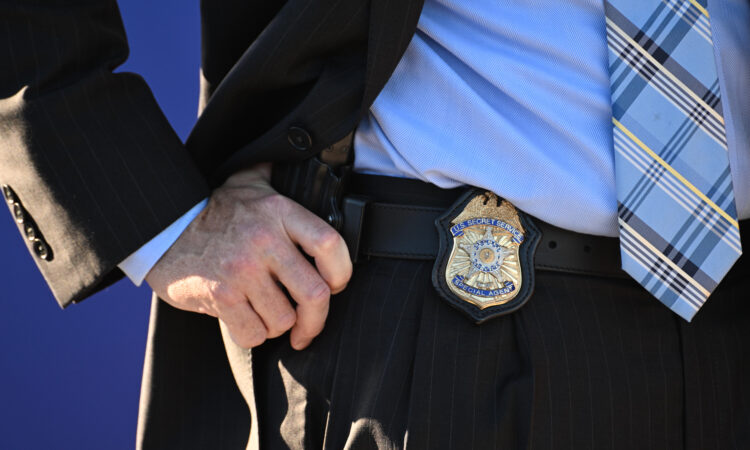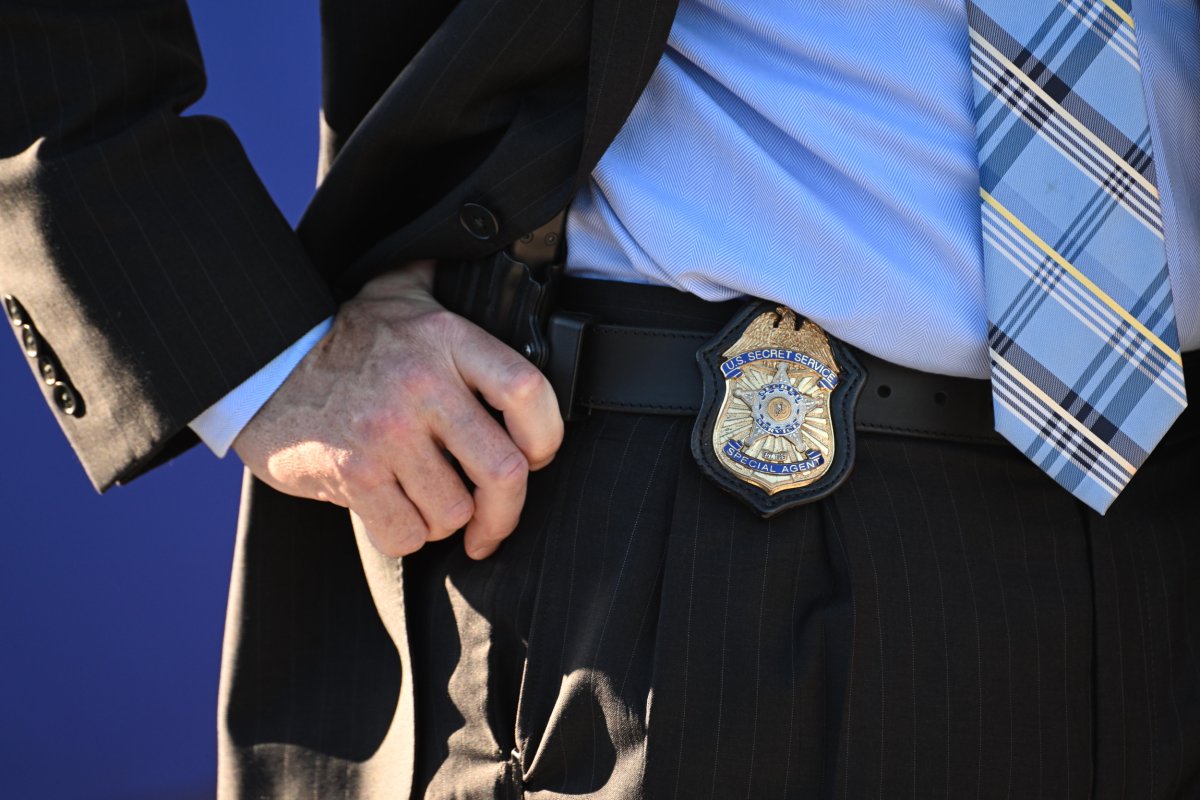
In a “game-changer” move against online fraud, issuers of the cryptocurrency Tether have frozen $225 million worth of alleged fraud proceeds from hundreds of victims, the biggest ever seizure of the suspected profits of online scams, U.S. officials and experts told Newsweek.
It is also the first time that such proceeds have been frozen inside standalone cryptocurrency wallets rather than in accounts on a crypto exchange. That matters because it is a blow to criminals who have embraced cryptocurrencies that lie beyond the control of national governments as a way to safely hide the proceeds of crimes such as online scams.
Tether announced Nov. 20 it had blacklisted funds in 37 wallets linked to so-called “pig butchering” scams. The freeze means that Tether in those wallets cannot be moved or sold, according to Shawn Bradstreet, special agent in charge of the U.S. Secret Service San Fransisco Field Office.
“They turned it into a lump of coal,” he told Newsweek about the move, which froze Tether tokens on the Ethereum blockchain, the vast computerized ledger that records transactions and makes cryptocurrency transactions instantaneous, irreversible and possible without a bank.
Bradstreet said investigators were still working on tracing funds in the case.
“As you can imagine, it’s not an easy trail. It’s spider webbing all over the place. So it’s going take some time to pull everything together,” he said.
Blockchain analyst firm Chainalysis confirmed the $225 million freeze in an email to Newsweek. Because the blacklisting happens on the public blockchain, it is visible to anyone with the technical skills to watch and interpret the data.
Tether executives say that transparency, combined with a centralized architecture that enables them to reach Tether tokens anywhere they’re held, amounts to a powerful tool to trace and recover fraud proceeds, which they’re working with police from 19 countries to use.
“Tether aims to set a new standard for safety within the crypto space,” said Paolo Ardoino, CEO of Tether, in a statement. He added that the decision to voluntarily freeze the funds “underscores our dedication to fostering a secure environment.”
Tether is a stablecoin, a cryptocurrency that is linked to the value of a fiat or conventional currency, in this case the U.S. dollar. That means it doesn’t fluctuate wildly in price like other cryptocurrencies can, making it a favored way to store value for people living under high inflation, or without access to convertible currency or bank accounts. That stability also makes it an ideal way for scammers to store the proceeds of their fraud.
But Tether executives say they are trying to send a message: Fraud proceeds in Tether tokens, called USDT, will be identified, traced, frozen and eventually reclaimed and returned to the victims.
“We condemn the misuse of USDT or any cryptocurrency for illicit purposes and are fully committed to collaborating with global law enforcement agencies,” said Ardoino.

Keet.io via Twitter
In a smaller separate case that preceded the big bust, Tether didn’t just freeze the $9 million in three self-managed wallets. In response to a request from U.S. federal authorities, they burned them, effectively erasing the tokens from the blockchain, and then reissued them to a special wallet controlled by the Secret Service.
“We have those funds,” Bradstreet said of the $9 million identified in the three court orders. He said they would now be redistributed to 70 victims who had been identified.
“Tether have never returned funds before in response to U.S. law enforcement request,” Bradstreet said, “So it was a big first step.”
But the three seizure warrants were issued by a U.S federal court November 30, 2022, and the transfer only completed almost a year later.
Tether “were very receptive, but it took time. It took a lot of back and forth,” Bradstreet said. The 89-page affidavit filed by a Secret Service agent in support of the seizure warrants tracks victims’ funds through dozens of transactions designed by the scammers to hide their tracks.
Tether, which is based in the British Virgin Islands, and not subject to U.S. jurisdiction, “voluntarily complied” with the court orders, said Bradstreet, and has now established a process for more quickly collaborating on future requests when fraud proceeds are identified.
Soaring Fraud
There is unlikely to be a shortage of fraud funds to recover.
“Pig butchering” is a form of online fraud, enabled by cryptocurrency. It is sometimes executed on an industrial scale by human trafficking victims based in South-East Asia. The target of the fraud is “fattened” during a long online courtship, and then enticed into an online investment website where their funds are spirited away.

Mark Makela/Mark Makela/Getty Images
As Newsweek reported last month, pig butchering has powered the hockey-stick growth of investment fraud against Americans. According to the FTC, there were fewer than 19,000 reports of such scams in 2019, and total losses were less than $182 million. By last year, losses had increased by more than 2,000 percent, to over $3.9 billion, reported by more than 106,000 victims. And owing to widespread under-reporting, the real numbers are probably much higher, the agency says.
Because the masterminds are overseas, beyond the reach of U.S. justice, pig butchering was widely seen as unprosecutable.
Tether’s move represents a decision to declare open season on fraud proceeds, Erin West, deputy district attorney for Santa Clara County, California, the home of Silicon Valley, told Newsweek.
“It’s a game-changer,” said West. “Tether are making clear they won’t let these criminals use their token to hide their ill-gotten gains,” she said.
West pioneered the technique of following the crypto trail to trace the proceeds of crime. Over the past year and a half, in response to court orders, the online cryptocurrency exchange Binance has turned over more than $2.6 million in scam proceeds to West’s office who’ve restored it to victims. And the technique has been employed by federal authorities, too. In a case unveiled in August, they used it to seize $112 million in fraud proceeds.
Like Tether, Binance’s cooperation with this gathering tide of American court orders is voluntary. And it remains so, even though the company pleaded guilty last month to a series of money laundering and banking compliance offences, agreeing to pay $4.3 billion in fines and more importantly adopt a consent order that mandates its cooperation with anti-money laundering and sanctions compliance, but is silent on the issue of fraud proceeds.
News of the plea deal came the same day as the Tether annoucement, overshadowing it.
Binance said the guilty plea and consent order “only served to strengthen [our] resolve to protect users from scams and frauds and immediately take action when we are alerted to them,” according to a statement from spokeswoman Jessica Jung.
West agreed, saying her contacts at Binance continued to work fraud cases with her and would turn a request for information around within hours.
The Binance plea deal, combined with the ability of Tether to reach into cryptocurrency wallets to reclaim their tokens is a wake-up call to the crypto industry, according to Nick Smart, director of blockchain intelligence and security for Netherlands-based Crystal Blockchain Analytic.
“It’s a line in the sand,” he told Newsweek, “If you want to be allowed to be a financial institution, then you have to be able to do all the things that financial institutions do. You have to take your compliance seriously.”
“The settlement agreement … marks the end of an era,” agreed Yiannis Giokas, a senior director for digital assets at Moody’s Analytics via email. “With digital currencies becoming more mainstream and institutional players entering the space, regulations and enforcement will become stricter to ensure compliance and consumer protection.”
Uncommon Knowledge
Newsweek is committed to challenging conventional wisdom and finding connections in the search for common ground.
Newsweek is committed to challenging conventional wisdom and finding connections in the search for common ground.






